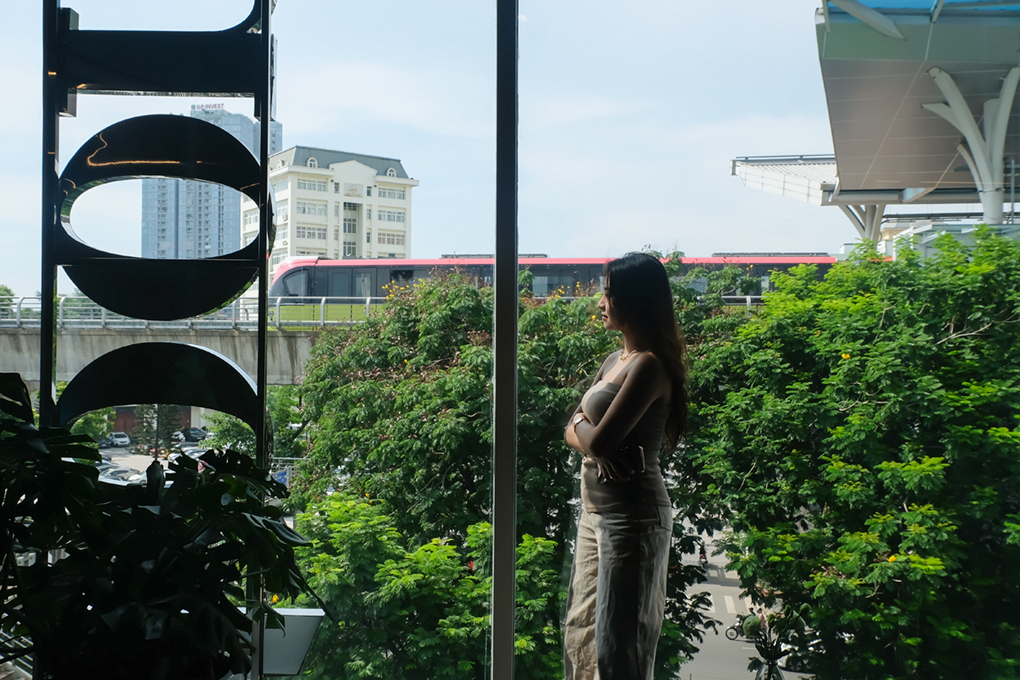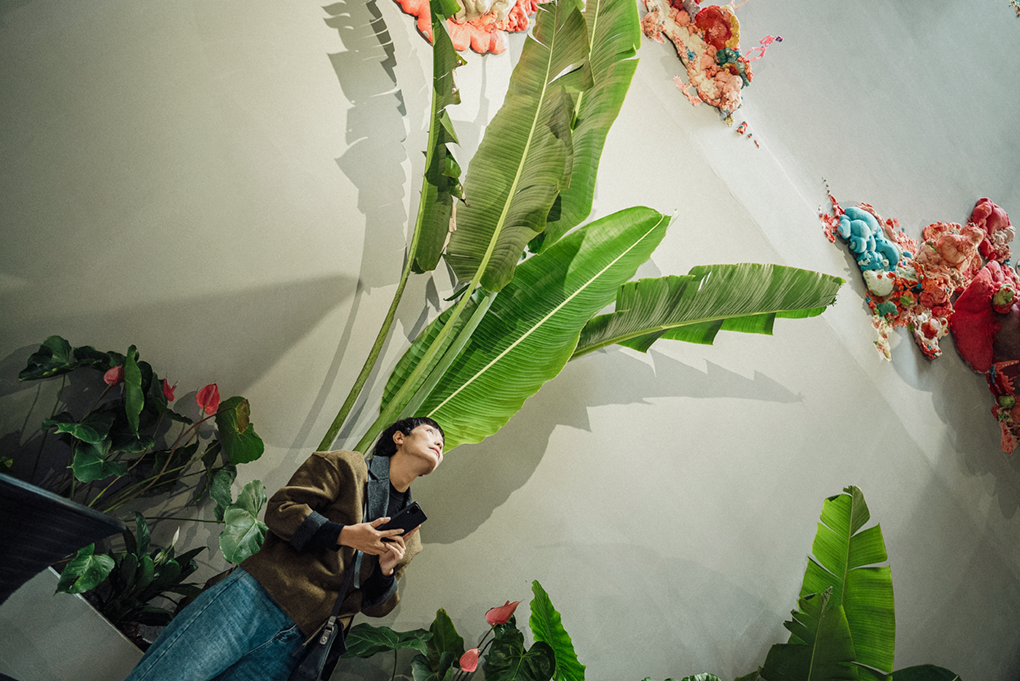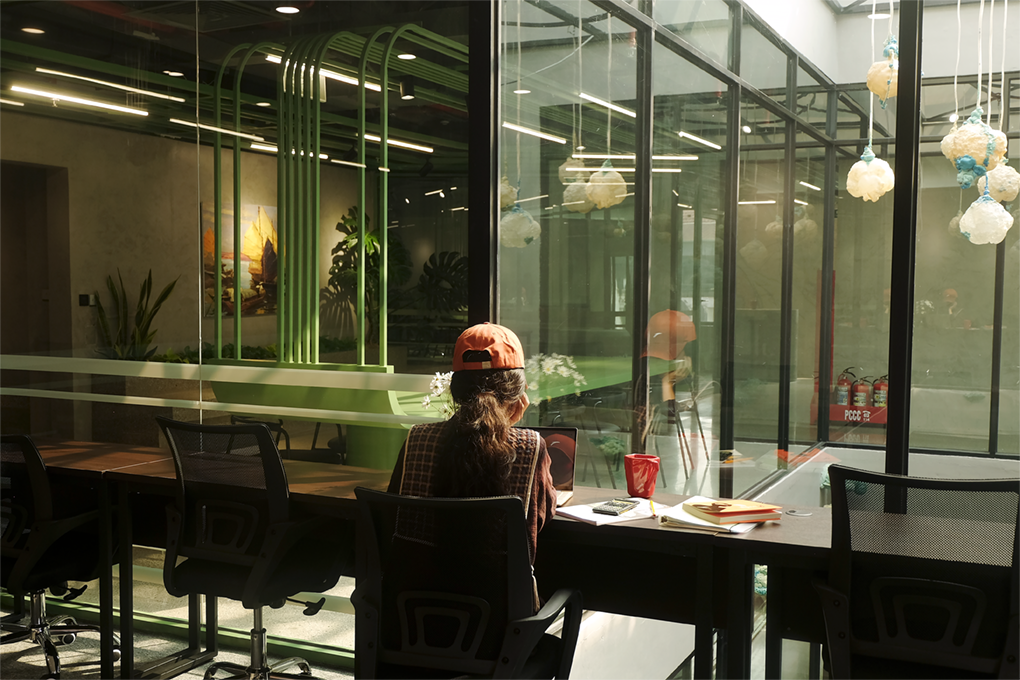The pressure to be yourself perfectly
Welcome to the era where even authenticity is curated “Be yourself.” Once a quiet rebellion, now a branded mantra. In an age where personality is polished for performance and individuality becomes another aesthetic, the question isn't just Who are you?—but Who are you trying to be seen as?
Between expression and expectation
Ever feel exhausted trying to be “yourself”—but the kind that algorithms reward? A personality that's unique enough to trend, digestible enough to like, and confident enough to never crack.
“Be yourself” used to be freedom. Now it feels like a directive: Be interesting. Be original. Be visible.
71% of Gen Z in Asia feel daily pressure to make an impression (GWI, 2024).
62% report burnout from constantly maintaining a consistent online identity (University of Melbourne, 2023).

“I once posted a philosophy book just to look thoughtful. The truth is, I spent the whole week binging K-dramas.” - L.A., 22, freelancer
When real becomes rehearsed
There’s a strange kind of panic when your name isn’t tagged, when your story gets no replies, when the group chat goes silent. As if not being seen digitally means you’ve disappeared entirely.
“I no longer know where the real me ends and the version I built begins.” - N.T., 24, creative (Toong anonymous survey, 2025)

“When I turn off my phone, I feel hollow. Like I stop existing when I’m not on screen.” - H.L., 21, university student
Anphabe (2022): 42% of young Vietnamese professionals feel emotionally drained from performing constant positivity, confidence, and charm, even when they don’t feel it.
We don’t just post highlights. We post the character we think the world wants to follow.
Not made for performance. Still worth being real.
You don’t have to perform to prove your worth. And you don’t need applause to be enough.
Some people find themselves in quiet rituals - a morning coffee, a bus ride with no headphones, a scribbled thought that no one else reads. Others live loudly with laughter, movement, colors. Both are valid. Neither owes anyone an explanation.
At Toong, we've watched people come to get things done, and stay because they found spaces where they didn’t have to impress. Just breathe. Just be.
📚 Journal of Positive Psychology (2023): True self-expression - through solitude, journaling, or offline time - boosts wellbeing and reduces social stress by 38%.

No audience. No filter. No proving. Just presence.
Your Self is not a Slogan
Being yourself isn’t a campaign.
- You don’t need to stand out to matter.
- You don’t need to be loud to be heard.
- You just need to stop editing yourself into someone else.
“58% of Gen Z feel happier when they stop curating themselves online and focus on real-life connection.” (MindNation, 2024).
And the pressure isn’t just digital. It’s cultural, generational, institutional. From “be better than them” to “can your passion pay bills?” - we’ve learned to trade authenticity for acceptability.
To live truthfully is to stand beside yourself, even when no one claps. It’s how you hold your ground in a world trying to shape you into what’s easier to label.

Being true means staying fully with the person you are when the noise fades.
This is not a rebellion. It's a return.
“Be yourself” doesn’t mean becoming something extraordinary.
It means returning to something you forgot: the ability to live with yourself, without explaining it to the world.
Choosing to be real isn’t giving up. It’s choosing freedom over performance. Truth over trends. You over likes.
And maybe that's the bravest thing of all - a quiet return to yourself, not an ending, but a still moment that finally feels like home.

Editors: Bùi Bích Trà My, Nguyễn Thạch Thảo
References:
-
Anphabe. (2022). Vietnam Workforce Survey. Retrieved from https://anphabe.com
-
Global Web Index. (2024). Gen Z Asia Report. Retrieved from https://www.gwi.com
-
MindNation. (2024). Mental Health and Digital Life Balance Report. Retrieved from https://www.themindnation.com
-
Nguyen, T., Li, H., & Campbell, J. (2023). Digital identity fatigue among youth. University of Melbourne.
-
Waterman, A. S., Schwartz, S. J., & Zamboanga, B. L. (2023). True Self and Wellbeing. Journal of Positive Psychology, 18(2), 134–150.




